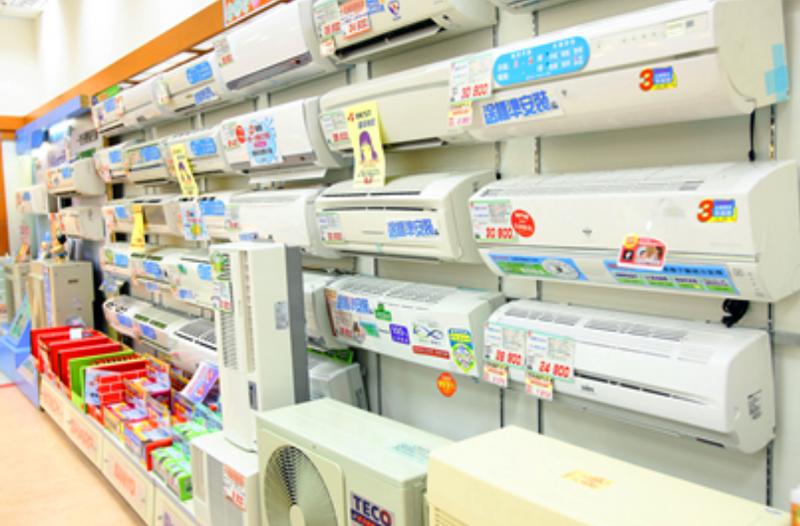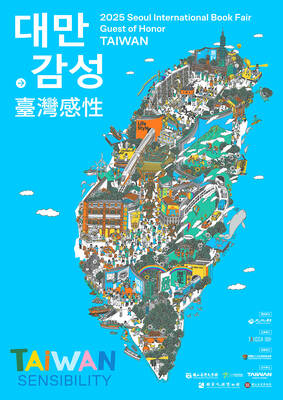A: I think the air conditioner’s on the blink. It doesn’t turn on when I push the button. What are we going to do?
B: We’ve had this air conditioner for years. Let’s just get a new one. We could buy one with a heater function.
A: Heater? Are you pulling my leg?

Photo: Pan Tzu-chiang, Liberty Times 照片:自由時報記者潘自強
B: A lot of people do the same thing: They buy an air conditioner in the summer when it’s scorching hot, and they forget how cold it gets in winter, much to their regret when it gets cold.
A: That’s right. My brother-in-law is from the US, and he says that Taiwan is colder than any other country, because in the winter the temperature drops to under 10 degrees, but there’s no interior heating.
B: It’s not cold in Taiwan for a long time over the year, but for those few days when we have a cold front, having a heater is worth every cent you spent on it.
A: 怎麼辦,冷氣機好像壞了,按開關都沒反應!
B: 這冷氣機也用了好多年了,乾脆換新的好了。買個有暖氣功能的。
A: 暖氣?你在開玩笑嗎?
B: 大部分的人就是跟你一樣,買冷氣機的時候都在夏天,熱得要命,所以都忘記冬天會有多冷,到時才後悔!
A: 啊對,我姐夫從美國來,說台灣是世界上最冷的國家,因為冬天十度以下,室內卻沒有暖氣。
B: 雖然一年當中台灣冷的時間不長,但是寒流來的那幾天有暖氣可以用,就值回票價了。
(Translated by Paul Cooper, Taipei Times/台北時報林俐凱)
English 英文:
Chinese 中文:

The 2025 Seoul International Book Fair was held from June 18 to 22 at the COEX Convention & Exhibition Center in Seoul, South Korea. This year, participants from 17 countries attended, with over 530 publishing houses and related organizations taking part. For the first time, Taiwan participated in the book fair as the Guest of Honor, bringing together more than 85 publishers and presenting a curated selection of 550 titles. A delegation of 23 Taiwanese creatives traveled to Seoul to attend the event, including 13 literary authors, six illustrators, and four comic book artists, among which were a film director, an

The new generation born between 2025 and 2039 has been officially named “Generation Beta,” or simply “Gen Beta.” This generation will be the first to experience a world where artificial intelligence (AI) plays a key role in daily life. Generations are defined by shared cultural, social and historical experiences within a specific time frame. These experiences, often influenced by significant events and technological advancements, shape the values, attitudes and behaviors of each generation. The concept of generations helps us understand how different age groups interact with their environment and contribute to societal changes over time. The previous generational transition from Gen

In late 2024, the suicide of acclaimed Taiwanese author Chiung Yao at 86 sparked a societal debate. She expressed her desire to avoid the difficult aging process and sought to govern her own death rather than leave it to fate. Her statements propelled the issue of “euthanasia” back into the public arena, posing the question of whether Taiwan should legalize euthanasia to grant patients and the elderly the right to die with dignity. Euthanasia, the intentional ending of a life to relieve suffering, is legal for humans in countries like the Netherlands and Belgium but remains prohibited in Taiwan.

Continued from yesterday(延續自昨日) https://www.taipeitimes.com/News/lang As Gen Beta grows, they are expected to witness advanced technologies becoming fully integrated into various fields like education, workplaces, healthcare and entertainment. In addition to technological developments, they will also face big challenges like severe climate change. Influenced by their Gen Y or Gen Z parents, who view climate change as a critical issue for the future and prioritize sustainability, they are likely to focus more on global issues and seek innovative solutions to address them. Moreover, Gen Beta will experience considerable demographic changes, such as lower birth rates and longer lifespans. Consequently, Gen Beta is predicted to